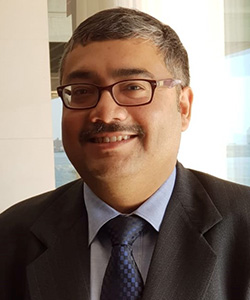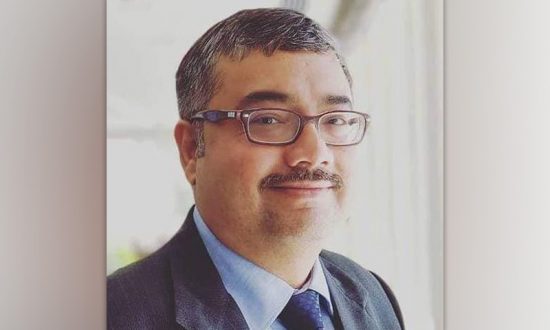Dr Indranil Bose is a PhD in management from India and a Fellow of Higher Education Academy, UK. He is engaged in higher and professional education in UAE under several international UK based university and vocational education system for the last seven years. He is a committed academic and researcher in different areas of business management of contemporary significance such as teaching and learning practices in international higher education and cross-cultural learning, peripheral work practice, strategic workforce modelling, open-source knowledge management, employee relations and many more.
For the last three decades, UAE has emerged as one of the most attractive destinations to all the stakeholders of the international higher education. Be it business management, engineering, social science, earth science, computing; many international universities and higher education institutions from across the globe have set up their campuses in UAE. With the very supportive and cordial socio-political environment, UAE has been able to attract more than forty foreign universities or higher education institutions from more than ten countries of Europe, Asia and America to start and operate their campuses. Some of the nations, from where such foreign universities or institutions of higher learning have progressively invested in UAE are USA, UK, India, Lebanon etc. apart from many public and private run local universities operating here. As per the UNESCO Institute for Statistics, a significant number of 77463 foreign students were studying with different local and foreign universities or institutions of higher learning in UAE in 2016. This number has definitely increased since then. It has been reported that the majority of the foreign students come to take admission in UAE based universities and institutions of higher learning in the disciplines like business, hospitality, tourism, engineering etc. Though the cost of higher education in UAE is still considered as significantly higher than in many countries, most of the foreign students consider this as the premium investment in their career as UAE is regarded as an excellent destination for starting an international career and to settle to millions of expatriates. However, the challenges of the real job market in UAE are becoming growingly complex over time. Because the students pursuing these courses are found to be significantly lacking certain essential qualities, the new age professions are increasingly demanding in this part of the world.
Corporations and multinationals operating in UAE are fast adopting new-age work practices based on certain principles, those are considered at par with some of the best practices of the western world. For example, a growing emphasis on diversity and inclusion has emerged as one of the most essential cornerstones of the success of many international organisations operating here. Though many other neighbouring gulf nations such as Oman, Bahrain, Qatar and many more are also working on promoting this fundamental principle of corporate excellence, UAE has clearly emerged the champion of this cause in the entire middle east despite the growing emphasis on localisation and other practices. Therefore the skills like cultural sensitivity have become one of the most essential requirements for the graduating foreign students in the UAE. It is well known that community-oriented universities and institutions of higher learning are doing quite well in attracting students from the respective communities and nationalities in UAE. For example, many western students pursuing their degrees in western universities, many Indians are studying with Indian universities, and all are somehow creating a social learning system based on silo practices. In such cases, cultural sensitisation might become a significant challenge for many. Universities and institutions of higher learning in UAE should have incorporated this most essential aspect in their curriculum or campus practices. More and more international student exchange programs and cross-cultural learning experience should be encouraged at the policy levels. These universities and institutions should also promote more diverse cultural calendars and practices at the campuses.
Developing an entrepreneurial mindset among students pursuing any program in UAE has become one of the most critical requirements. A recent study has shown that many of the international campuses operating in UAE lack behind the global practices of entrepreneurial incubation and entrepreneurial culture. This is quite a significant deficiency as UAE has emerged as one of the most attractive destinations of foreign and domestic investments due to very robust support mechanisms promoted by the federal government and the authorities of the respective emirates. Some of the biggest free zones of the entire MENA region are located in UAE and still, the participation of the foreign students pursuing their professional education in UAE in the process of setting up startups in UAE is still far behind than many other developing countries. Universities and institutions admitting the foreign students should collaborate with the local government and private authorities and must rigorously create such an environment in the campus itself. Many of the foreign students choose UAE as their higher education destinations as the country offers them the opportunity to settle here and to pursue their dreams. Any such practice to develop an entrepreneurial mindset among them can definitely encourage more foreign students to opt for this country. Already high global standing of this beautiful, friendly nation will definitely increase many folds with such measures.
Many new areas of research trends are fast catching up in high education across the globe. Courses on analytics and data science, artificial intelligence, robotics, engineering management, liberal arts and social media, fin-tech, Block-chain, hospitality etc. have emerged as some of the most sought after disciplines and will remain so for next few decades. More and more universities and institutions of higher learning based at UAE operating in both public and private domains can work seriously to offer such programs and courses for their students. A recent study by the Curriculum Research in MENA (2019) has shown that less than 20% of the universities and institutions of higher learning operating in UAE are seriously working on these areas. A vast number of universities and institutions of higher education operating in UAE are still concentrating on the basic program offering. Definitely, changing this prerogative will attract more foreign students to the UAE shortly. UAE government and respective authorities of the different emirates have already incorporated all these practices in the governance systems. However, the massive skill gap between managing and safeguarding these practices require a large number of human capital skilled in these areas. Hospitality is a significant revenue earner for this nation. However, only a few institutions are offering well-regarded hospitality and tourism-related educations in UAE. Following the model practised in Switzerland, UAE based universities can also encourage setting up world-class hospitality educations to create a more sustainable eco-system for the industry. On the areas of engineering and technology, the country should emphasise on developing some of the world’s best learning and knowledge building experiences by combining earth science with engineering. The country already has some of the globally regarded centres of research in mining and petroleum-related engineering and research such as the Petroleum Research Institute of Abu Dhabi etc. However, more such institutions can be created with the existing expertise available with the country, and such endeavours can attract more international students.
UAE offers some of the best opportunities in the modern world. It has shown the world that within a short span of four decades, a nation can emerge as one of the most practical, growth-oriented and progressive countries. Higher education is the pillar of sustaining any such progressive endeavour. World’s leading destinations of higher education are still dominated by the western countries from North America and Europe and few from Asia. UAE has all the possibilities to emerge and to be part of this elite league in the near future. As a very young nation, the country has indeed achieved phenomenal progress to emerge as one of the most attractive destinations of higher education. However, many new adoptions can create positive boosts in this speeding process.
About Dr Indranil Bose

Dr Indranil Bose is looking after academic quality assurance, teaching and learning in the university and vocational learning, designing and introduction of new courses at his present engagement with the University of Bolton, Ras Al Khaimah, UAE as the Dean, School of Business. In India, he has taught with many universities and institutions offering postgraduate and undergraduate management education. He is the recipient of many international awards like Turn-it-in Global Innovation Award (Honourable Mention) for writing with integrity, Dewang Mehta Best Professor Award etc.




